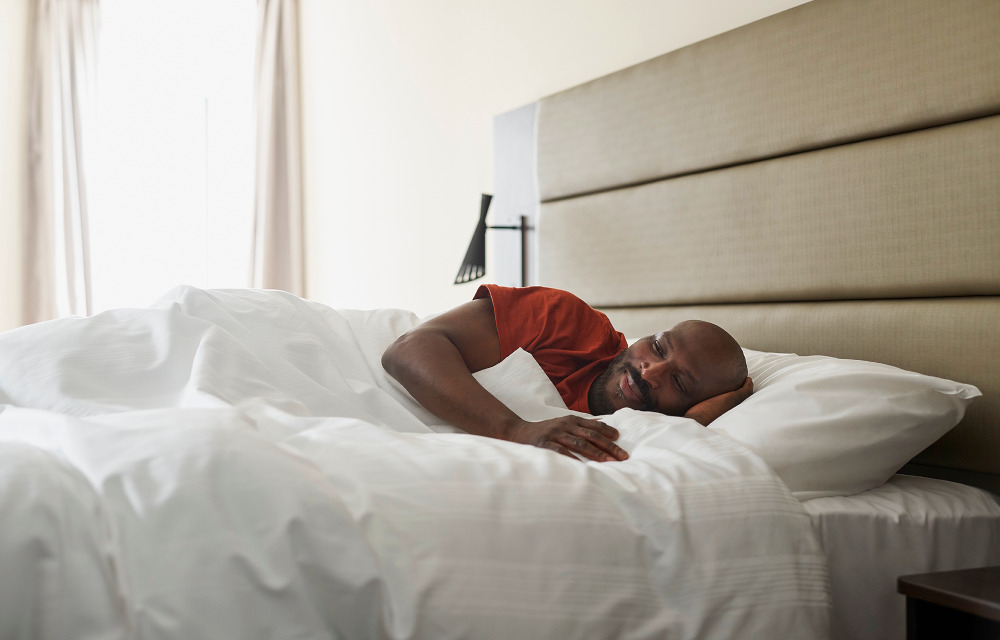We all love the idea of a bank holiday weekend, don’t we? That extra day opening up an abundance of possibilities, that we wouldn’t have over a normal weekend. But are we guilty of biting off more than we can chew when it comes to making plans?
In our recent study, nearly nine in 10 Brits say they have suffered ‘bank holiday burnout’ – and are more exhausted after a busy, long weekend than they were before it started. Yikes!
Out of 2,000 adults, 42% admit to feeling the pressure to make the most of the extra day off, losing an average of four hours of sleep compared to normal weekends. Almost one in six said they try to fit in as many activities as possible into the three-day weekend.
Social jetlag – it’s time to rethink overbooking your bank holidays

The result? 84% have found themselves stuck in a social plan they can’t escape, wishing they’d made time to relax instead. Many admit cramming in activities like gardening, cleaning and those long-put-off DIY jobs – oh how we all can relate to those five-minute jobs… Hours, more like!
By trying to squeeze everything in, something’s got to give – and it does. 94% said they’d sacrifice sleep by either going to bed later or getting up earlier – or both.
According to sleep experts, all these pressures amount to the real possibility of ‘social jetlag’ – which is similar in its symptoms to traditional jetlag.
In fact, two thirds of Brits and almost nine in 10 Gen Z respondents admit that they’ve experienced social jetlag after a long weekend!

Sleep expert, James Wilson (also known as The Sleep Geek) says:
“We’re all guilty of trying to pack too much into a long weekend. We tend to stay up later, wake up later, catch up on household chores, eat at odd times and maybe drink a bit more than usual – all this throws your body clock off track and you could end up with social jetlag.”
When asked what they'd prefer to be doing with their long weekend, people said they wished for more time outdoors (23%), lounging in the sun (21%) and simply doing nothing (22%).
When it comes to heading further afield for relaxation, only 17% spend a day at the beach and just 16% go away on last-minute holidays.
Other factors that contribute to better sleep? Fresh sea air (30%), a cosier bed (30%) and a change of scenery (11%).
What about schedules? Six in ten admit to overloading those – signing up to plans they didn’t really want to (25%), rising early even though they felt beyond tired (25%), or travelling back late and going headlong into work the following day (16%).
As a result of schedule overload, 21% of workers feel like they need an extra day to recharge, saying that going back to work again (15%), not sleeping properly (16%) and trying to please everyone (15%) are the most tiring aspects of the long weekend.
When quizzed about their concerns on returning to a shorter week after three days off, 14% worried about lapsing behind with emails, 13% were concerned about their task list and 12% were stressed about cramming five days of work into four.
A spokesperson for Premier Inn said:
“We want to put the ‘holiday’ back into ‘bank holiday’. We know how easily those extra bank holiday days can fill up with life admin like catching up on emails, running errands and cleaning the house, but it’s important to remember that it’s supposed to be a holiday. Our sleep expert and research highlight the value of taking a proper, well-earned break – whether it’s a mini-break to the coast, making time for a spontaneous getaway or just having a change of scenery.
A change can be as restorative as rest and making time to pause the life admin and truly unwind will leave us feeling refreshed, recharged and ready for the days ahead.”
Top tips from a sleep expert to recover from social jetlag
Cut yourself some slack
If your sleep isn’t great on Monday night, don’t feel guilty about it. Having fun is important for your mental health and by simply accepting that Tuesday might be a bit tougher, you’ll probably sleep better just by not stressing about it.
Soak up the sunshine
Getting some natural light early in the day is like a reset button for your body clock. Even 15–20 minutes during the day can make a huge difference. Do it as early as possible – especially on Tuesday – and keep it going all week.
Eat like your rhythm depends on it
Your circadian rhythm isn’t just driven by light – it’s also influenced by when you eat. Try to eat your meals at regular times from Tuesday onwards and avoid heavy meals less than three hours before bedtime.
Move your body, but don’t overdo it
Exercise is brilliant for sleep, but timing matters. If you’re sleep-deprived and usually exercise early, maybe skip that 6am HIIT class on Tuesday. Moving your body is great, but swap high-intensity workouts for something gentler like a walk until you’re back in sync.
Put the sleep tracker down
Sleep trackers can be insightful, but if you already know sleep might not be brilliant, staring at a number telling you what you already feel isn’t going to help. In fact, obsessing over your sleep (known as orthosomnia) can make it worse – so take the data with a pinch of salt until things are back to normal.
Have you got a burnout-beater plan ready to go? For weekend escapes to get away from it all, Premier Inn are your trusty compass to great adventures across the UK, Ireland and Germany. So, drop that to-do list and let’s get a hotel stay in the diary to look forward to – you’ll thank us later!